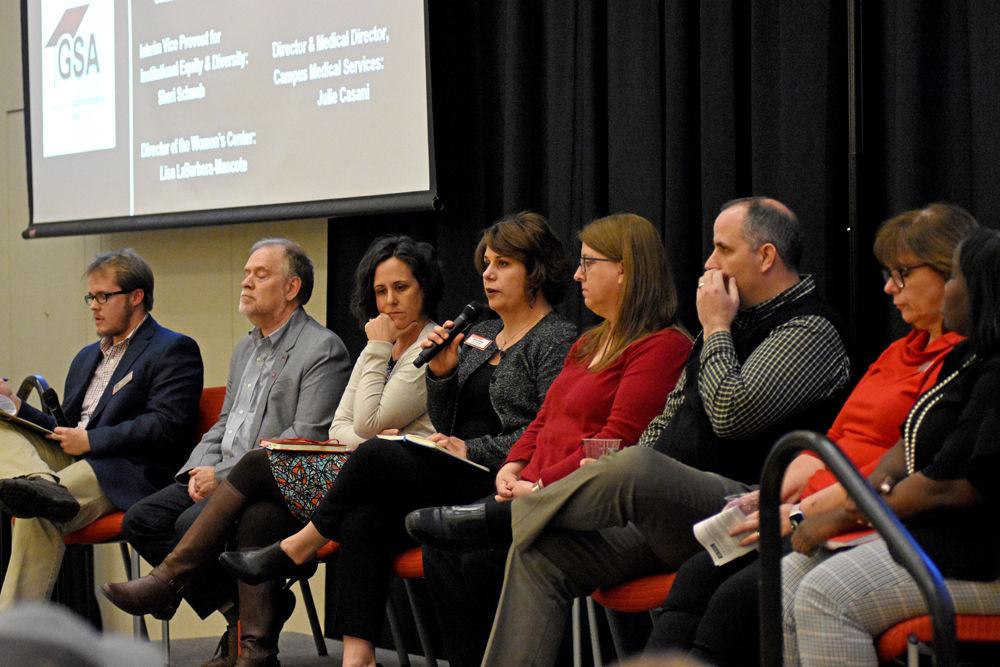On Monday, March 4, the Graduate Student Relations Department hosted a town hall addressing graduate students’ concerns regarding mental health, advisor-student relationships and a power dynamic with advisors.
The event was led by Mike Madden, a Ph.D candidate in marine, earth and atmospheric sciences and director of Graduate Student Relations. He began with an anecdote about research recently done looking into mental health of graduate students done, and said that graduate students are six times more likely to experience depression and anxiety compared to the general population.
Angel Bowers, associate director of Outreach at the Counseling Center, echoed the study’s points, saying that NC State’s counseling center has experienced overcrowding, which is of great concern considering the rise of graduate students’ mental health issues.
“The numbers are skyrocketing, and we’re seeing this in counseling,” Bowers said. “We’re seeing about a 40 percent increase in the number of students that are coming in, and we’re also seeing an increase in the intensity of the concerns that are bringing students in. More high risk situations, more students that are struggling with food insecurity.”
The center currently employs 45 full-time counselors compared to 15 that were originally employed six years ago, signaling a rise in demand, according to Bowers.
A significant portion of the town hall was spent discussing the relationship between graduate students and their research advisors. Lexie Malico, a third-year Ph.D. student studying chemistry and candidate for student body vice president, asked for clarification on graduate students’ roles at the university.
“This is a question that a lot of graduate students have and have never quite gotten a clear answer on, which is ‘Are we faculty or staff or students, and what are our rights as such?’” Malico said.
Peter Harries, interim dean of The Graduate School, answered by saying they were students, which was established at a federal level. If not mandated as students, it would greatly bring costs up and lead to fewer graduate students at universities. However, several attendees expressed concerns about work exploitation and an unfair power dynamic that made them question their role as students.
Madden brought up a quote from an anonymous source referencing an extreme case of this said power dynamic.
“‘My advisor requires the female students working in this lab to be on a reliable form of birth control, is that permitted?’” Madden said. “There’s some times when you hit a literal brick wall; what do you do in those kinds of situations?”
Sheri Schwab, interim vice provost for Institutional Equity and Diversity, reacted to the statement by saying that was blatantly unacceptable, and advised anyone in such a situation to reach out to her office.
In response to a student question about existing policies to prevent work exploitation, Harries said that there were none such in existence regarding the amount of work that faculty can make graduate students do, because of the nature of the student-advisor work relationship.
“There are no policies that regulate that; I would find it hard to create a policy that’s meaningful,” Harries said. “Some people are workaholics and they go in there and work whether their advisor demands it or not…As grad students, you’re in a situation where there’s an extreme power differential, and I completely appreciate that.”
Speakers at the event shared a multitude of avenues for graduate students to discuss concerns they face, including University Ombuds, Student Health Center and the Office for Institutional Equity and Diversity.








